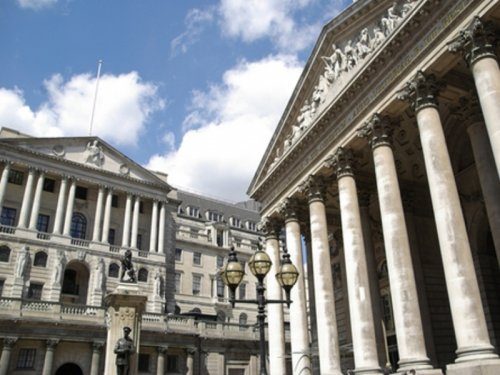Bank hikes interest rates again with eye to rising inflation

The Bank of England has raised interest rates by 0.25% to 0.75%, back to pre-pandemic levels, as it seeks to contain the UK’s inflationary surge, which it fears could soon rise to eight per cent.
It is the third time since December the Bank’s Monetary Policy Committee (MPC) has increased the cost of borrowing.
The MPC voted by a majority of eight to one to increase the rate by 0.25%, to 0.75%. One member preferred to maintain rate at 0.5%.
In its announcement it also roundly condemned Russia’s invasion of Ukraine, saying: “The Bank of England condemns Russia’s unprovoked invasion and the suffering inflicted on Ukraine. The Bank is working closely with the UK Government to support its response in coordination with international authorities. The Bank’s Monetary Policy Committee supports this condemnation and welcomes these actions.”
The MPC first increased rates from record lows of 0.1% to 0.25% in December. It then doubled the rate to 0.5% in February.
However, inflation hit 5.5% in January, and is likely to rise to more than seven per cent next month.
There is also the added fear of a wage-price spiral as cost of living levels rise, due to the upcoming increase in National Insurance contributions, and the impact Russia’s invasion of Ukraine is having on energy costs, as well as food and commodity costs.
Bank of England Governor, Andrew Bailey, was roundly criticised last month when he urged workers not to ask for big pay rises to counter the effect of rising inflation.
But the City thinks rates could rise this year to at least two per cent, or perhaps 2.5%, in four or five stages.
Last night the Federal Reserve raised US interest rates for the first time since cutting them to record lows in 2020.
The Bank said UK GDP in January was stronger than expected in the February report. It said business confidence has held up and labour market activity data have remained robust.
But it added that consumer confidence has fallen in response to the squeeze on real household disposable incomes. That impact on real aggregate income is now likely to be materially larger than implied by the projections in the February report, consistent with a weaker outlook for growth and employment, all else equal.
Today’s statement confirmed that the Bank expects inflation to rise to around eight per cent in the second quarter of 2022, and perhaps even higher later this year.
A concern is an anticipated increase in the energy price cap in the winter which could feed into inflation figures.
The Bank said: “If sustained, the latest rise in energy futures prices means that Ofgem’s utility price caps could again be substantially higher when they are reset in October 2022. This could temporarily push CPI inflation around the end of this year above the level projected for April, which was previously expected to be the peak.”
But it offered a glimmer of hope, adding: “Further out, inflation is expected to fall back materially, as energy prices stop rising and as the squeeze on real incomes and demand puts significant downward pressure on domestically generated inflation. That judgement also reflects that monetary policy will act to ensure that longer term inflation expectations are well anchored around the two per cent target.”

Martin McTague
Martin McTague, national chair of the Federation of Small Businesses (FSB), said: “This move will mean higher debt costs for many firms at a moment when soaring overheads are threatening futures.
“The economic consequences of the pandemic are still being felt by small businesses, whose ability to make up for lost time and income has been undermined by a vicious cycle of rising costs.
“A lot of small firms have had no choice but to increase prices in response, but this isn’t always an option, especially in sectors still trying to entice customers back, such as hospitality and tourism, and their suppliers.”
He added: “At the same time, consumer confidence has plunged and the cost of living squeeze has intensified, with record fuel prices and sky high utility bills meaning loss of disposable income.
“Small businesses increasingly feel that the Government is indifferent to the cost pressures they face. The planned hikes to National Insurance and dividend taxation taking effect in a matter of days, alongside an income tax threshold freeze, will, for many, be the final straw.
“We urgently need to see the Chancellor ease the pressure on the five and a half million small firms and sole traders on which our recovery will depend.”








